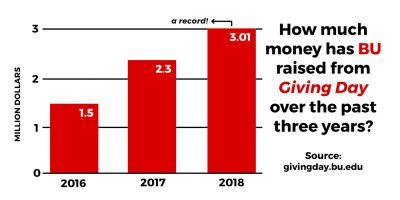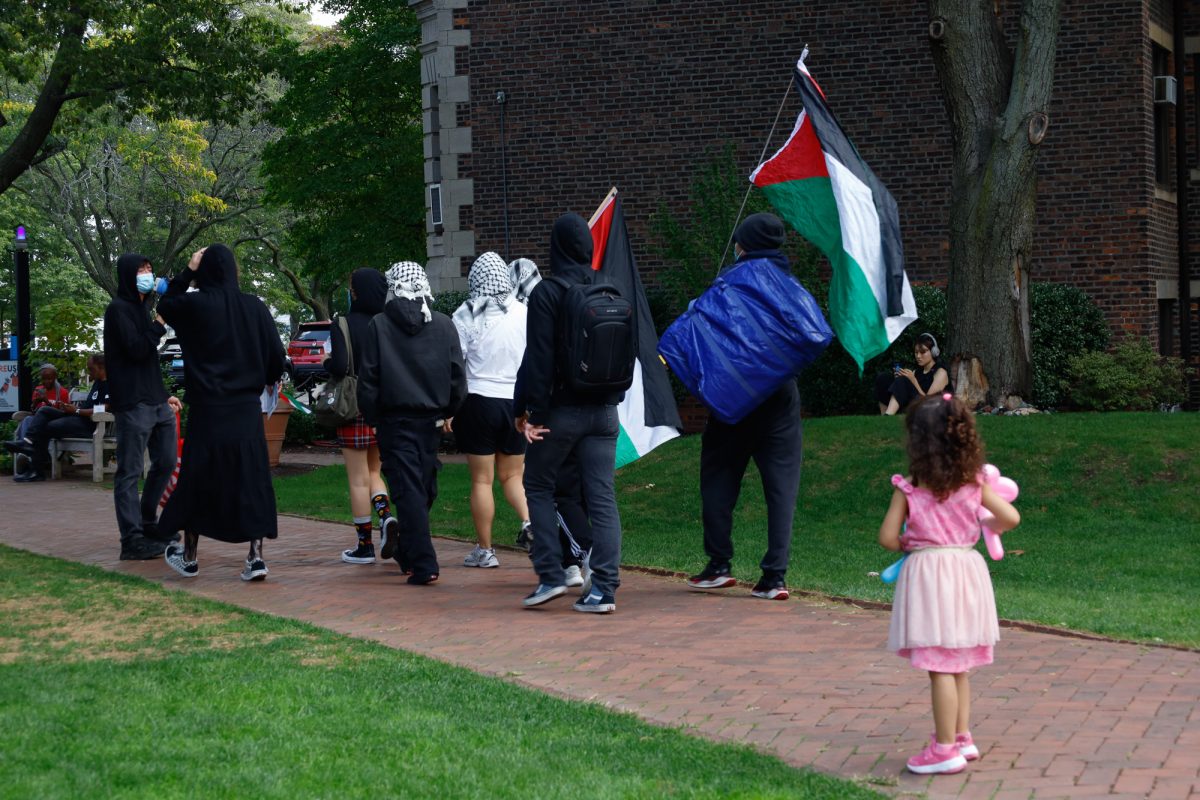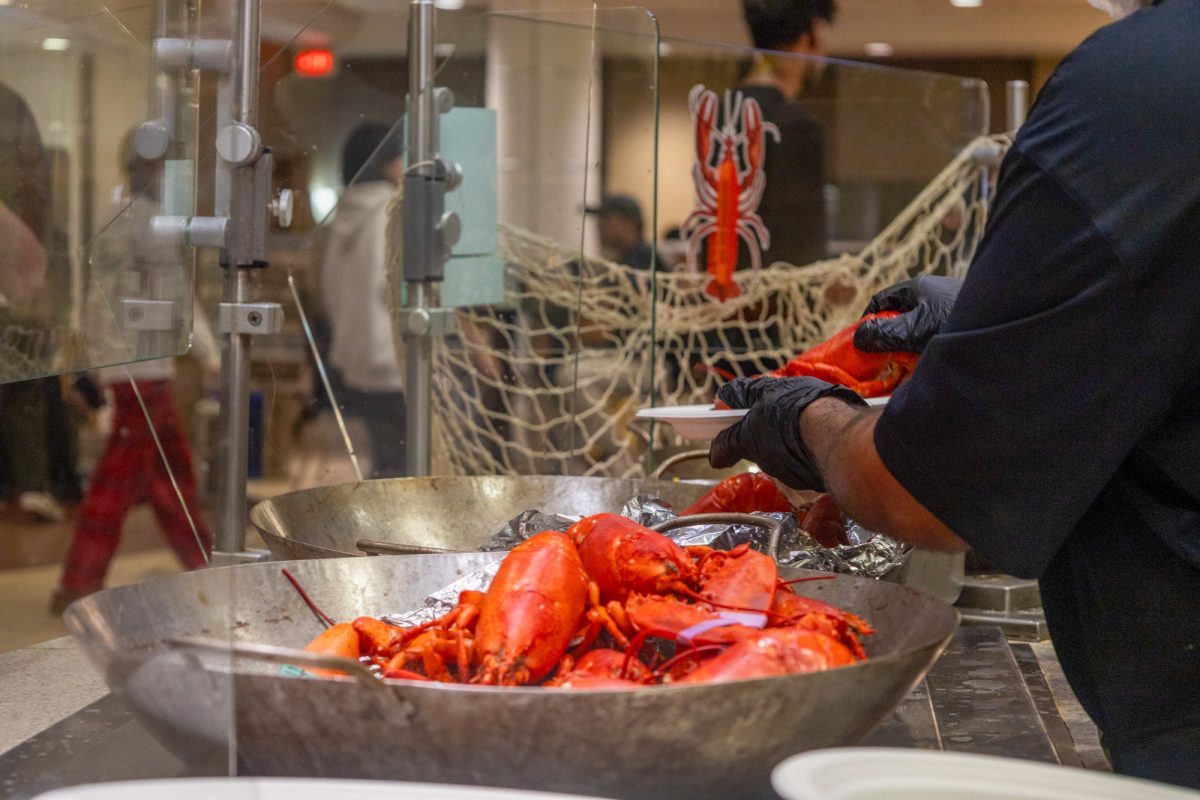
Boston University shattered its fundraising record last Wednesday during its fifth annual Giving Day, raising more than $3 million from 10,095 donors.
Giving day is a 24 hour online fundraising push which originated at Columbia University and now takes place on campuses across the country. BU’s Director of Annual Giving Stephanie Quinn said there were several factors that contributed to this Giving Day’s success.
“We really ramped up our website, and I think one of the things that that allowed us to do was really highlight very specific causes,” Quinn said. “The ramping up of our website really highlighted the fact that you can give it to very specific areas and it got people excited about sharing that.”
Quinn said the donated funds go exactly where the donors direct them, whether it’s a department, team, organization or cause. She said that for many organizations on campus, the event is budget-enhancing, allowing them to pursue things they might not have been able to pursue without the extra support.
Since its inception five years ago, Quinn said BU’s Giving Day has been seeing more and more support not only in the total amount of money raised, but also in the number of unique donors.
Giving Day acts as a vehicle to get the BU community talking about philanthropy and feeling energetic about the idea of giving, wrote Steve Hall, vice president for alumni relations at BU, in an email.
“There is a strong culture of philanthropy among members of the BU community,” Hall wrote. “Alumni, students, parents and faculty and staff all understand the importance and the impact of their gifts to BU.”
BU seniors Nebeyatt Betre and Kaitlin Geraghty are co-chairs of BU’s class of 2018 Class Gift Committee, which ran a carnival at the George Sherman Union as one way to spread awareness during the philanthropic campaign.
Past Giving Days have been successful in generating funds for campus organizations, but this year’s record-breaking turnout was not exactly expected, Geraghty wrote in an email.
“I was really nervous that we wouldn’t even be able to come close to the incredible job that was done last year,” Geraghty wrote, “but the BU community came together to support the causes they love.”
Betre said the question she is asked most is why seniors should donate if they would be graduating before they could see their donation’s impact.
“The only reason that a lot of seniors have had their experiences is because people before them gave back,” she said. “Now, Terriers after us are going to be able to enjoy it the same way we have.”
Several students on campus said the record-breaking event was a testament to the commitment of members of the BU community and the quality of the programs BU offers.
Ryan Schlossman, a freshman in the College of General Studies, said he likes that donors were able to allocate where their donations were going, and that had he heard about the effort, he would have donated money himself.
“I’ve always thought that our school gives a lot,” Schlossman said. “But to know that 10,000 people donated $3 million — it’s a lot of money for 10,000 people.”
Courtney Singer-Coseglia, a senior in the College of Arts and Sciences, said that when she donated, she put the money toward the women’s ice hockey team. A member of BU Bands, Singer-Coseglia said she would like to see Giving Day expand to include more causes.
“I like the idea. However, I feel like a lot of groups are left out,” Singer-Coseglia said. “As a member of the band, I know that we’re underfunded, and I know we need the funding.”
Singer-Coseglia said she thinks it was great that the BU community raised as much money as it did, and hopes there will be opportunities in the future for people to donate to more areas around campus.
“I just hope they continue to be successful and I hope that eventually there’s a way for me to donate directly to BU Bands,” she said.
Grace Yang, a junior in CAS, said she thinks Giving Day is unique because unlike tuition money, students know exactly where their donations are going.
“This is a good way of getting funding from people who want to give it,” Yang said. “It shows that BU does have some worthwhileness to it that makes it worth giving back to.”



















































































































Desmond Molloy • Apr 18, 2018 at 2:10 pm
“After tuition reaches $70K per year, SAO’s stinginess forces students to pay more to keep clubs afloat”.
Fixed your headline for you.